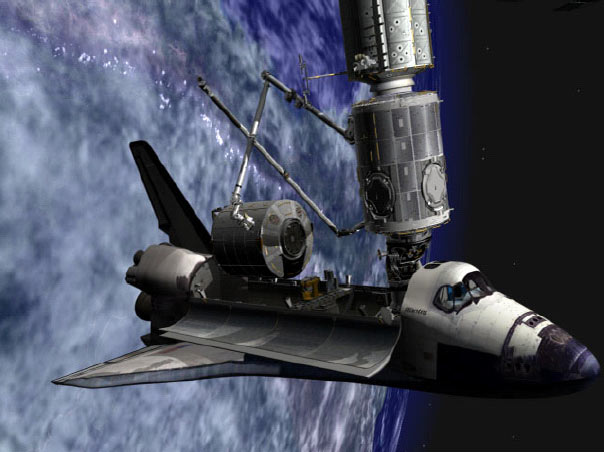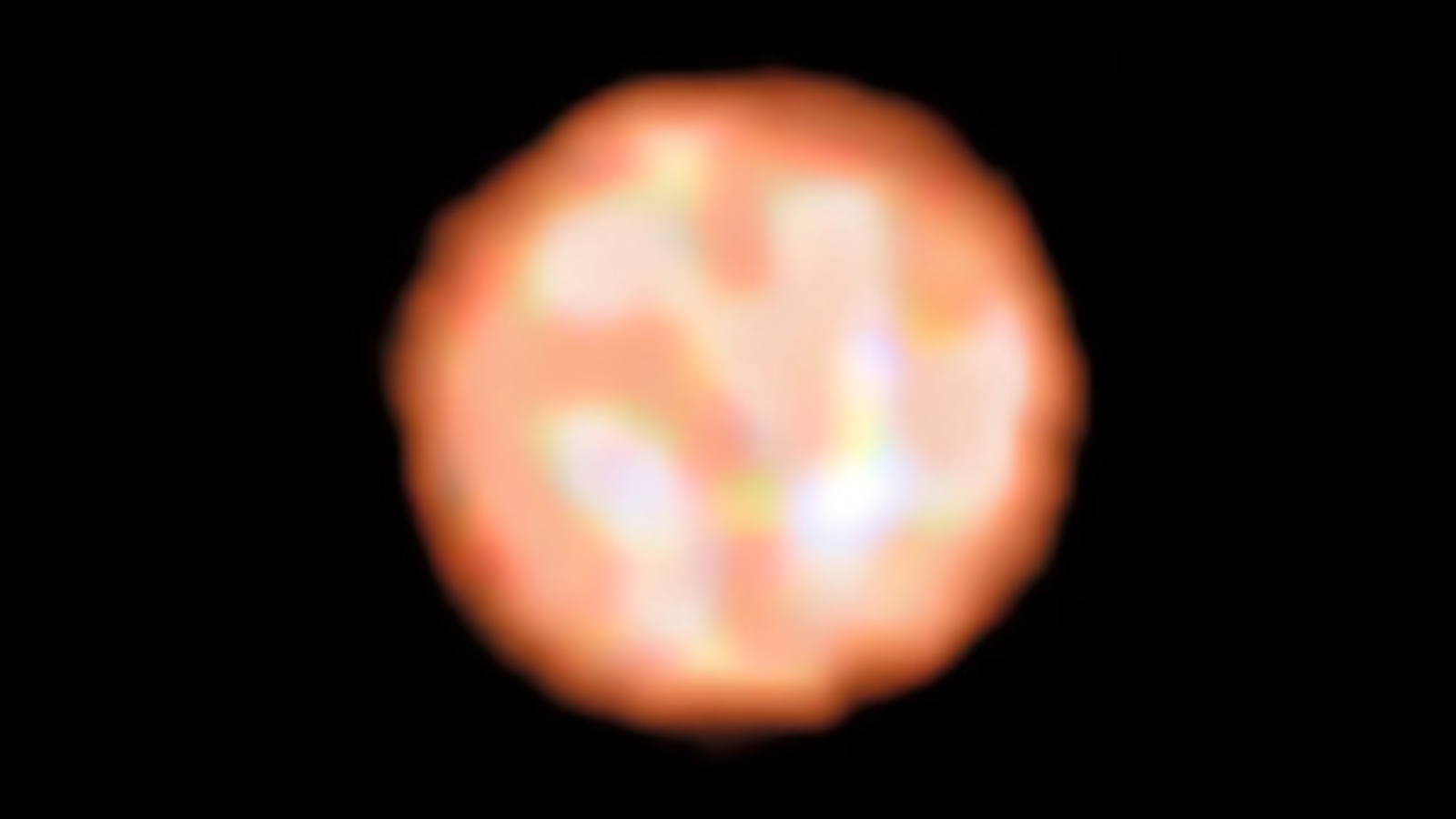Astronauts to Install Station's New European Lab

This story was updated at 5:33 a.m. EST.
HOUSTON — Astronauts will deliver Europe's first manned space lab to the International Space Station (ISS) in a spacewalk today, though with a different lineup than originally planned.
Atlantis shuttle astronauts Rex Walheim and Stanley Love are due to step outside the station's Quest airlock today at 9:35 a.m. EST (1435 GMT) to attach the European Space Agency's (ESA) Columbus laboratory to its new orbital home.
ESA astronaut Hans Schlegel, of Germany, was originally set to join Walheim on today's spacewalk, but mission managers replaced him with Love after an undisclosed medical issue arose among the shuttle crew on Saturday. Schlegel will help Atlantis pilot Alan Poindexter choreograph today's spacewalk from inside the shuttle.
"The only difference is who's going out the hatch," said Mike Sarafin, lead shuttle flight director for Atlantis' mission. None of the tasks for today's planned 6.5-hour spacewalk were modified because of the crew switch, he added.
Today's spacewalk is the first of three planned excursions for Atlantis' 12-day mission to the ISS. The outing will mark the third career spacewalk for Walheim and the first for Love, who is also making his first spaceflight during the shuttle flight.
"It's going to be really cool, but a little bit scary too," Love has said of making his first spacewalk. "There's a lot of interesting work to do."
Breaking space news, the latest updates on rocket launches, skywatching events and more!
Love is trained as a backup for Schlegel's spacewalking tasks and was already assigned to the mission's third excursion, mission managers said.
Columbus' orbital arrival
Packed with about three tons of equipment and hardware, the 10-ton Columbus is the ESA's largest contribution to the ISS and the first new science module to join the station since NASA's Destiny lab arrived in 2001.
The 1.4 billion euro ($2 billion) lab's activation is the culmination of more than 20 years of development by the ESA, and will be used for microgravity, astronomy and life science research.
"Columbus utilization now will be, within a few days, a reality and not just a dream," ESA director-general Jean-Jacques Dordain said after Atlantis launched the new lab into space on Feb. 7.
Mission controllers in Oberpfaffenhofen, Germany — just outside of Munich — will watch over the 23-foot (7-meter) long module's science operations once it is installed. The lab is about 14.7 feet (4.5 meters) wide and will add about 2,648 cubic feet (75 cubic meters) of volume to the ISS.
"[This] is our basic spacewalk to get Columbus ready to be attached to the space station," Walheim said in a NASA interview. "It's always fun to see the new piece put on the station."
Walheim and Love will remove cables and covers from Columbus and attach a grapple device that will allow their crewmate Leland Melvin to latch onto the European lab using the space station's robotic arm. The spacewalkers will also prepare an ISS cooling system nitrogen tank for replacement.
It will be Melvin who will slowly haul Columbus on a more than two-hour trip to its final perch on the right side of the station's Harmony connecting node. If all goes well, the new lab should be attached to the ISS by 4:25 p.m. EST (2135 GMT).
"I think everyone is going to be holding their breath, waiting for this moment when Columbus gets attached to the space station," Melvin said before flight.
Mission Control here at NASA's Johnson Space Center roused the Atlantis crew at 4:46 a.m. EST (0946 GMT) with the song "Fly Like an Eagle" by Steve Miller, a tune chosen specifically for Melvin by his family.
"That was a great way to wake up today on a day when we're going to install Columbus," Melvin told Mission Control, thanking his family and sister Kathy Clarke. "She lets me know that I can fly like an eagle, which we're doing overhead right now, and it's going to be a beautiful day."
The first spacewalk of Atlantis' STS-122 mission will begin at 9:35 a.m. EST (1435 GMT).
NASA is broadcasting Atlantis' STS-122 mission live on NASA TV. Click here for SPACE.com's shuttle mission coverage and NASA TV feed.

Tariq is the award-winning Editor-in-Chief of Space.com and joined the team in 2001. He covers human spaceflight, as well as skywatching and entertainment. He became Space.com's Editor-in-Chief in 2019. Before joining Space.com, Tariq was a staff reporter for The Los Angeles Times covering education and city beats in La Habra, Fullerton and Huntington Beach. He's a recipient of the 2022 Harry Kolcum Award for excellence in space reporting and the 2025 Space Pioneer Award from the National Space Society. He is an Eagle Scout and Space Camp alum with journalism degrees from the USC and NYU. You can find Tariq at Space.com and as the co-host to the This Week In Space podcast on the TWiT network. To see his latest project, you can follow Tariq on Twitter @tariqjmalik.
